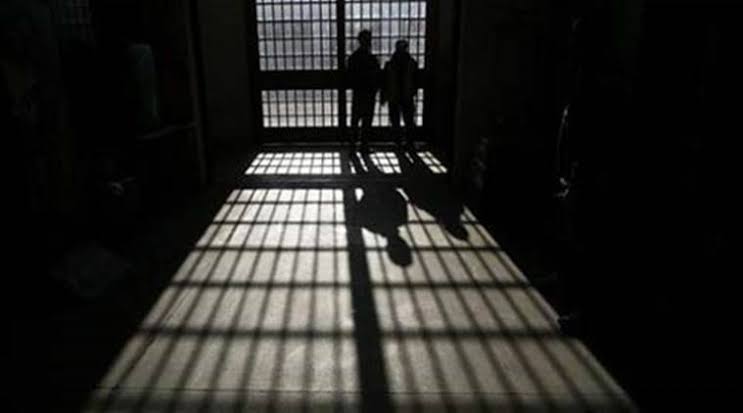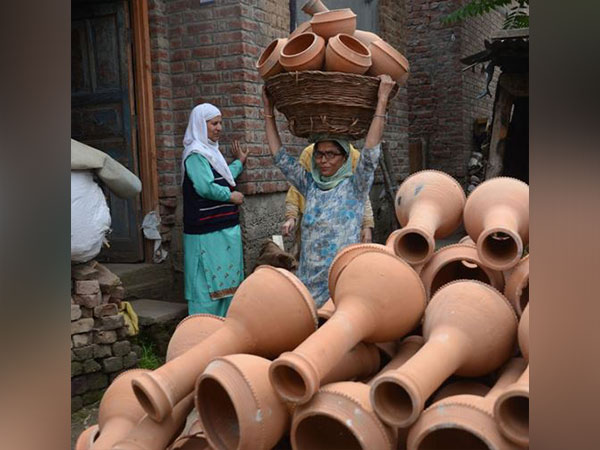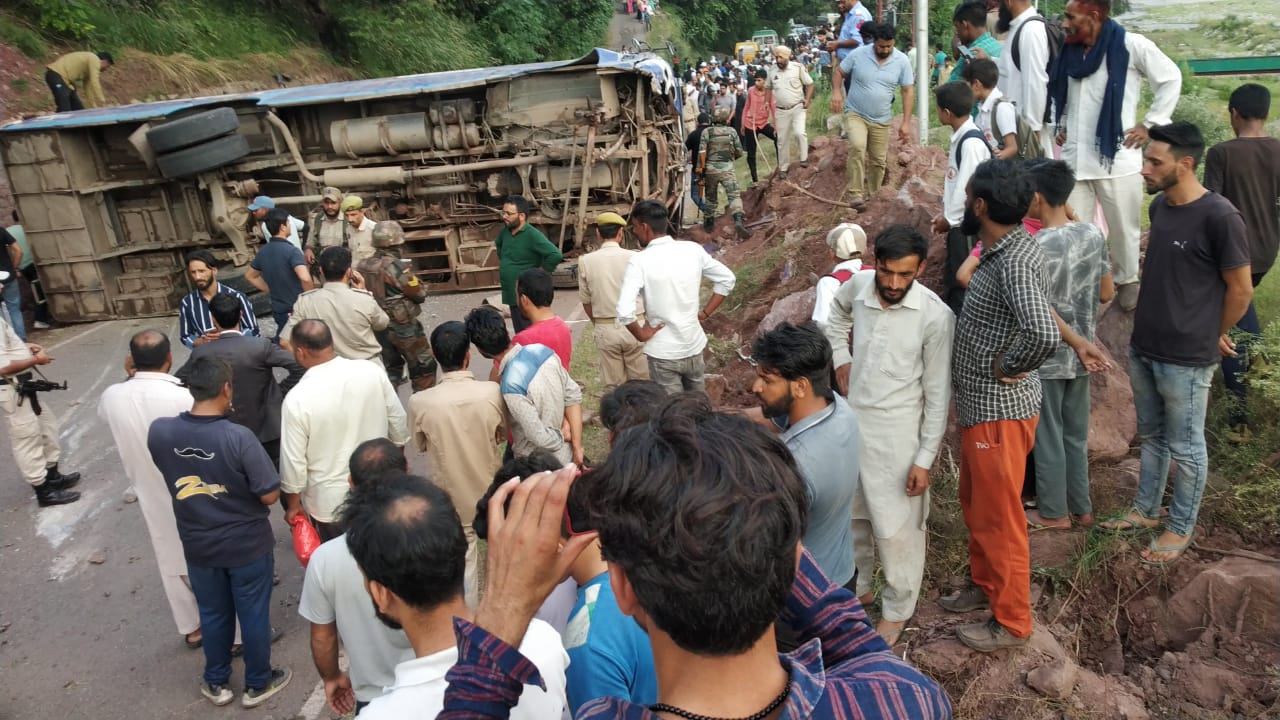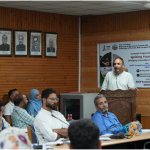Jails in Jammu and Kashmir during the past three years have changed from radicalization hubs into reformation centres as the hardcore terrorists have been segregated from other inmates.
The prisons in the Himalayan region are filled with prisoners, who challenged the sovereignty of India either by taking up arms against the country or by preaching separatism and sedition. Not only locals, many hardcore terrorists hailing from Pakistan and Pakistan-occupied Kashmir, are lodged in these jails. These hardcore prisoners till August 5, 2019 — when the Centre announced its decision to abrogate J-K’s special status — used to pass the directions to their accomplices from within the jails to carry out subversive activities and were instrumental in radicalizing other inmates. They managed to run terror modules from within the prisons and left no opportunity to create disturbance within the jails. But during the past three years the noose has been tightened around them and most of them have been shifted to prisons outside the Union Territory.
In 2016, the then Mehbooba Mufti-led government in erstwhile J-K state had moved a proposal to set up exclusive prisons for lodging the terrorists so that they do not get a chance to radicalize other prisoners.
Mehbooba-led government was aware of the fact that some inmates in Srinagar’s Central Jail and other jails across J-K were being indoctrinated by terrorists and it could have dangerous consequences. But the process to lodge terrorists in separate jails remained confined to papers only as the then Peoples Democratic Party (PDP)-led government did not carry forward the process despite Union Home Ministry asking to it to decongest the jails.
In a letter to J-K government, the Union Ministry of Home Affairs (MHA) in 2015 stated that there was an urgent need to decongest jails by setting up secure prisons for terrorists and terror accused outside the city.
“If that is not feasible, then very high risk prisoners and other under trial prisoners under the category of terrorist/security suspects are required to be segregated effectively from the ordinary prisoners within the complex of central and district jails,” read the communication sent by the MHA.
The MHA had also asked the J-K government to ensure restrictions on the movement of high-risk prisoners within the jails and their mixing with other inmates even during transit to court, hospital, etc.
“To avoid the chance of indoctrination, ban on possessing objects that could potentially be used to harm others, arrangements of court’s hearing through videoconferencing in case of high-risk prisoners,” the letter had stated.
After receiving the letter, the then PDP-led government undertook a “cosmetic exercise” and moved a proposal and then dumped it.
In February 2018, the dreaded Lashkar-e-Taiba terrorist, Naveed Jutt managed to escape from SMHS hospital in Srinagar when he was brought for a routine checkup.
Investigations had revealed when Jutt was lodged at Central Jail in Srinagar, three months before his escape he used to get a regular visitor from south Kashmir. The visitor would bring food for Jutt to the prison. The mysterious visitor, according to the investigations, had played a pivotal role in Jutt’s escape.
Jutt was taken to the SMHS Hospital on January 30, 2018, for treatment and was scheduled for a follow-up visit on February 6, 2018.
On February 6, 2018, Jutt was again brought to SMHS hospital as part of a group of six prisoners. Each prisoner was handcuffed and accompanied by a couple of policemen. The prison group reached the hospital around 11.30 am and the vehicle they were travelling in stopped at the parking lot.
Jutt then complained of discomfort. While the other prisoners were led into the hospital, the two guards accompanying Jutt waited till he was ready to leave the vehicle. Once the others had entered the hospital, Jutt said he was ready to go.
Soon after he got out of the vehicle, as was seen in the hospital’s CCTV footage, Jutt looks towards someone — an accomplice, Hilal Ahmed Rather — standing some distance away. Footage showed him making a ‘V’ sign to Rather as he entered the hospital.
The police said that the sign told Rather that there were only two guards accompanying Jutt. On cue, Rather pulled out a pistol and shot both the policemen — head constable Mushtaq Ahmed and constable Babar Khan. Both of them died on the spot and Jutt managed to escape.
After Jutt’s escape National Investigation Agency (NIA) in March 2018 raided the Srinagar Central Jail and seized a Pakistani flag, 25 mobile phones and Jihadi literature.
Before being killed in an encounter with security forces, Naveed Jutt along with this two accomplices shot dead Shujaat Bukhari, prominent journalist and editor of a local daily Rising Kashmir, outside his office at Press Enclave in Srinagar in June 2018.
After Bukhari’s killing Bharatiya Janata Party (BJP) pulled out of the PDP-led government in J-K to pave the way for taking decisive action against the terror and the terrorists operating in the Himalayan region. Since that day there has been no looking back as the government has cracked the whip on terrorists and their supporters.
After August 5, 2019–when the Centre abrogated Article 370, a temporary provision in the Constitution–the process to decongest jails in J&K was expedited. During the past three years, many hardcore terrorists have been shifted to prisons outside the Union Territory.
In March this year, the authorities shifted 96 detenues to Haryana, Uttar Pradesh and Delhi jails from J-K. The step was taken to break the nexus of terrorists lodged in high-security Kot Bhalwal Jail and some other prisons in J-K with terror elements operating outside.
The 96 detenues, who were shifted included 53 terrorists involved in major terror activities and apprehended during encounters and searches and three criminals booked under the Public Safety Act (PSA). Rest 40, were moved out from other jails of J-K, including Central Jail Srinagar.
After the abrogation of Article 370, the Jammu and Kashmir administration entered into an arrangement with the governments of Haryana, New Delhi and Uttar Pradesh for lodging hardcore terrorists there to break their nexus with the outside terror world which they were managing while being kept in the jails of J-K.
The security agencies have formulated a comprehensive strategy to ensure that hardcore terrorists and criminals don’t stay in one jail for a long time as they may develop their network even there with the help of criminals lodged in their barracks.
Separatists like Yasin Malik, Nayeem Khan, Bitta Karatey, Asiya Andrabi and others have been lodged at Tihar jail in New Delhi.
After 2019, the intelligence agencies conducted many raids in Kot Bhalwal Jail, Central Jail Srinagar and other prisons and recovered mobile telephones, SIM cards and other gadgetry from the jail which were being used by terrorists for staying in touch with their colleagues in the Valley and issuing directions from inside.
During the past three years, authorities have enforced strict guidelines inside the jails to ensure that the terrorists don’t manage to get mobile telephones or SIM cards inside. Previously, it was observed that few Over Ground Workers posing as relatives of the terrorists managed to smuggle mobile telephones and SIM cards inside the jails.
In November 2021, the J-K government had sacked Deputy Superintendent Jails Feroz Ahmad Lone after the probe established that he was linked with the terrorists. Lone was appointed in 2007-08 in the Prisons Department and finally got a job in 2012 after a prolonged court case. He was working for terror groups. He was arrested by the National Investigation Agency in 2017 and since then he continued to remain under suspension.
The NIA probe had established that Lone had facilitated a meeting between two youths, Danish Ghulam Lone and Sohail Ahmad Bhat, and arrested terrorist Ishfaq Palla at the behest of the commander of the banned Hizbul Mujahideen, Riyaz Naikoo.
The two youths were to go to Pakistan, receive arms training and return to Kashmir. However, before they could leave, the duo was nabbed by the police in 2017 and the case was subsequently taken over by the NIA. During interrogation, the youth named Lone, was arrested by the central probe agency and sent to jail.
After 2019, the Prisons Department has been dealing with radicalization inside jails with an iron fist. Prisoners, who are found to be involved in provoking others, are being sent to jails outside J-K. Nearly 150 detenues, including terrorists, were shifted to jails outside J-K from January to August this year.
The prisoners, who are lodged in different jails across J-K and were misled by the anti-national and extremist elements, are being de-radicalized and they are coming out as reformed persons.
The mobile signals near the prisons have been jammed to prevent the prisoners from communicating with the outside world in case they manage to get a hold of a cell phone. Jails in J-K have been turned into reformation centres where the prisoners are being counselled with the aim that they do not return to prisons after being freed. (ANI)








